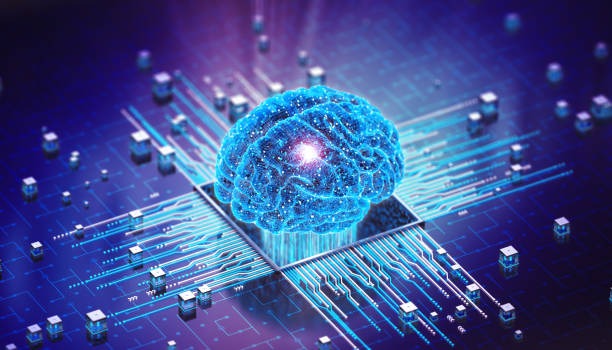The Ultimate Guide to AI Marketing: Transform Your Strategy in 2025
Artificial Intelligence (AI) is no longer a futuristic buzzword—it’s a game-changing tool reshaping how businesses approach marketing. Whether you’re a solo entrepreneur or leading a growing team, integrating AI into your marketing strategy can drive better results, save time, and help you outpace competitors. In this guide, we’ll explore what AI marketing is, why it matters, and how you can leverage it to revolutionize your approach in 2025 and beyond.
AI MARKETING


What is AI Marketing, and Why Does It Matter in 2025?
Artificial Intelligence (AI) marketing has become indispensable in a world dominated by digital-first consumers. In 2025, businesses must adapt or risk falling behind. AI marketing integrates cutting-edge technologies like machine learning, predictive analytics, and automation to optimize campaigns, personalize customer experiences, and streamline operations. Understanding its potential is critical for future-proofing your marketing strategy.
The Evolution of AI in Marketing: Past, Present, and Future
AI's journey in marketing began with simple automation tools. In the early 2000s, marketers used AI for tasks like email sorting and rule-based campaign management. By 2025, AI has evolved into a transformative force, driving personalized experiences and unlocking actionable insights from vast datasets. Future trends suggest even greater reliance on AI for predictive decision-making, voice search optimization, and real-time customer engagement.
The Growing Role of AI in Modern Digital Marketing
As AI matures, its influence extends across every aspect of digital marketing. It is no longer a tool for niche applications but a core component of strategies aimed at enhancing efficiency, improving targeting, and creating memorable customer experiences. AI-powered marketing is reshaping the industry landscape and setting new benchmarks for success.
Understanding AI Marketing
What is AI Marketing? A Comprehensive Definition
AI marketing leverages algorithms and data analytics to optimize marketing efforts. It enables marketers to predict customer behavior, automate repetitive tasks, and craft highly personalized campaigns. Key technologies include machine learning, natural language processing, and advanced analytics.
Key Features of AI Marketing
Predictive Analytics: Accurately forecasts customer behavior and market trends to guide decision-making.
Personalization: Tailors campaigns to individual preferences, ensuring relevance and engagement.
Automation: Simplifies tasks like lead scoring, email campaigns, and ad management, saving time and resources.
Data Insights: Analyzes complex datasets to uncover opportunities that traditional


Why AI Marketing is a Game-Changer for Businesses
AI marketing revolutionizes the way businesses interact with their audiences. It provides tools to anticipate customer needs, execute campaigns more efficiently, and measure outcomes effectively. These capabilities give businesses a significant edge in competitive markets.
Improved Targeting with AI: Precision and Accuracy
By analyzing extensive datasets, AI can identify customer segments with incredible precision. Instead of generic messages, businesses can deliver personalized content that resonates deeply with their audience.
Cost Efficiency and Streamlined Operations
Automation powered by AI reduces operational costs by handling repetitive and time-intensive tasks. Marketers can focus on strategy and creativity while AI takes care of execution.
Enhancing Customer Experience Through Personalization
AI enables hyper-personalization, tailoring experiences to individual customer preferences. This approach fosters loyalty and drives higher engagement rates.
How to Implement AI in Your Marketing Strategy
Step 1: Assessing Your Marketing Needs
Start by identifying areas where AI can create the most impact, such as improving lead generation, enhancing customer engagement, or optimizing ad targeting.
Step 2: Choosing the Right AI Tools and Platforms
Select platforms tailored to your needs. Popular options include:
HubSpot: For CRM and marketing automation.
Google Ads AI: For optimizing ad bidding and targeting.
ChatGPT: For content creation and customer service.
Step 3: Starting Small with Pilot Projects
Start with a smaller project to test the waters, like improving email campaigns or testing AI-driven social media ads. Analyze the results to confidently scale up and integrate AI more deeply into your strategies.
Step 4: Training Your Team to Leverage AI Tools
Your team plays a key role in making AI work effectively. Invest in training programs to help them master these tools. Confident teams ensure smoother implementation and consistent results.
Step 5: Measuring Results and Continuous Optimization
Track key metrics like open rates, conversions, and ROI. Use these insights to fine-tune your strategy. AI thrives on good data, and regular optimization based on performance will lead to better outcomes.


Personalization at Scale: AI-Driven Email Campaigns
AI makes personalized emails effortless. Tools like Mailchimp help tailor campaigns based on user behavior, making messages feel more relevant and increasing engagement.
Conversational AI: Chatbots Revolutionizing Customer Support
AI chatbots provide 24/7 support, answering questions and solving problems without needing human assistance. They ensure customers always feel heard, even outside of normal business hours.
AI for Dynamic Ad Targeting: Real-Time Adjustments
AI ensures your ads reach the right audience at the right time. Tools like Meta Ads use real-time data to adjust targeting, keeping your campaigns efficient and impactful.
Content Creation Powered by AI Tools
AI tools like Jasper and ChatGPT can produce high-quality content quickly. Whether you need blogs, social posts, or even video scripts, these tools save time and deliver excellent results.
Emerging Trends in AI Marketing for 2025
Voice Search Optimization: Preparing for Voice-Activated Queries
Voice search is becoming a key part of the user experience. Optimize your content to be conversational and clear so it performs well in voice search results.
AI-Generated Videos: Revolutionizing Video Marketing
AI tools can turn simple text prompts into professional-quality videos. This innovation is perfect for brands looking to create eye-catching content efficiently.
Predictive E-commerce: AI-Powered Shopping Experiences
AI helps predict what customers need, offering product recommendations and personalized shopping experiences. This trend is reshaping how people shop online.
Advanced Sentiment Analysis in Social Media
AI analyzes customer sentiments to help businesses understand what’s working and what needs improvement. It provides valuable insights for enhancing your strategy in real time.
Benefits of Early Adoption of AI Marketing
Gaining a Competitive Edge in the Digital Marketplace
Adopting AI early gives you a head start over competitors. You’ll position your brand as a leader while meeting customer expectations.
Boosting ROI with Smarter Marketing Investments
AI ensures your resources are used efficiently, delivering better returns for every dollar spent.
Building Brand Loyalty Through Enhanced Engagement
Personalized, engaging interactions make customers feel valued. AI helps create these meaningful connections, fostering loyalty and retention.
Conclusion
Summary: Why Businesses Must Act Now to Leverage AI
AI marketing is not just an advantage; it’s becoming essential. It enhances every aspect of marketing, from targeting to personalization, helping businesses stay ahead in a fast-evolving landscape by saving time, money, and effort in all aspects of their business.
Start Your AI Marketing Journey Today
The future of marketing is here, and now is the time to embrace it. Begin integrating AI tools into your strategy and see the difference they make. Don’t wait—start today.
